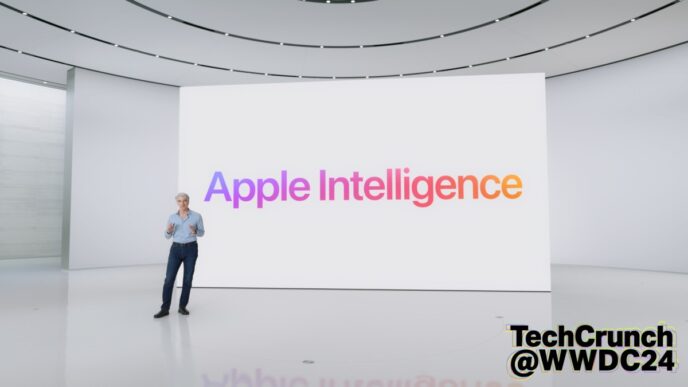A federal proposal blocking states from regulating AI for five years is on the verge of becoming law. Texas Sen. Ted Cruz and allies are pushing to include the so-called “AI moratorium” in a GOP megabill with a Senate vote planned Monday. This comes ahead of a critical July 4 deadline.
OpenAI CEO Sam Altman, Anduril’s Palmer Luckey, and a16z’s Marc Andreessen back the move. They say a messy state-by-state regulatory patchwork would kill U.S. innovation and hurt the AI race against China.
Critics include most Democrats, several Republicans, Anthropic CEO Dario Amodei, labor groups, AI safety nonprofits, and consumer advocates. They warn the moratorium blocks state laws protecting consumers and lets big AI firms dodge accountability.
Seventeen Republican governors recently called on Senate Majority Leader John Thune and House Speaker Mike Johnson to strip the moratorium from the budget bill, Axios reports.
The provision first aimed to ban states from enforcing AI laws for a decade but was trimmed to five years after Cruz teamed up with Sen. Marsha Blackburn. The new version partly exempts laws on child sexual abuse materials, kids’ online safety, and rights to name, likeness, voice, and image—but with a vague “no undue or disproportionate burden” clause on AI systems, leaving legal experts unsure of the impact.
The moratorium could override existing state laws like California’s AB 2013, requiring disclosure of AI training data, and Tennessee’s ELVIS Act, which protects creators from AI impersonations. Public Citizen’s database shows many overlapping state AI laws, including several that penalize deceptive AI media targeting elections.
It also threatens key pending bills, such as New York’s RAISE Act, which would force large AI labs to publish safety reports.
To fit the moratorium into a budget bill, Cruz made compliance required for states to get $42 billion in Broadband Equity Access and Deployment (BEAD) funds. A June revision tied it to $500 million in new BEAD funding but also risks pulling already obligated funds from states refusing to comply.
Sen. Maria Cantwell blasted this, saying it “forces states receiving BEAD funding to choose between expanding broadband or protecting consumers from AI harms for ten years.”
Image Credits: Sean Gallup / Getty Images
Monday’s Senate vote-a-rama will include Cruz and Blackburn’s new language as part of a broader amendment Republicans are expected to pass along party lines. Democrats plan a counter-amendment to remove the moratorium.
Chris Lehane, OpenAI’s chief global affairs officer, posted on LinkedIn:
“The current patchwork approach to regulating AI isn’t working and will continue to worsen if we stay on this path.”
“While not someone I’d typically quote, Vladimir Putin has said that whoever prevails will determine the direction of the world going forward.”
Altman echoed that during a recent podcast, saying detailed state-by-state rules would create a mess and slow AI services. He also questioned whether policymakers can keep pace with fast-evolving AI tech.
State laws mainly protect consumers from AI-specific harms like deepfakes, fraud, bias, and privacy issues, focusing on hiring, credit, elections, and healthcare.
TechCrunch asked OpenAI and tech giants Meta, Google, Amazon, and Apple if any state laws have blocked their progress or releases. None have responded yet.

Image Credits: Maxwell Zeff / TechCrunch
Opposition calls the moratorium a dodge to avoid oversight, not a move to protect innovation.
Emily Peterson-Cassin from Demand Progress said:
“The patchwork argument is something that we have heard since the beginning of consumer advocacy time.
But the fact is that companies comply with different state regulations all the time. The most powerful companies in the world? Yes. Yes, you can.”
Nathan Calvin, VP of state affairs at nonprofit Encode, which backs AI safety bills, told TechCrunch:
“If the federal government wants to pass strong AI safety legislation, and then preempt the states’ ability to do that, I’d be the first to be very excited about that.”
“Instead, [the AI moratorium] takes away all leverage, and any ability, to force AI companies to come to the negotiating table.”
Amodei, in a New York Times op-ed, called a 10-year moratorium “a blunt instrument.”
“AI is advancing too head-spinningly fast,” he wrote.
“I believe that these systems could change the world, fundamentally, within two years; in 10 years, all bets are off.
Without a clear plan for a federal response, a moratorium would give us the worst of both worlds — no ability for states to act, and no national policy as a backstop.”
He wants the government to team with AI firms on transparency standards instead of prescriptive release controls.
Republican critics also push back, citing states’ rights. Sen. Josh Hawley is working with Democrats to strip the moratorium. Blackburn and Rep. Marjorie Taylor Greene oppose it for undermining protections for citizens and creatives; Greene even threatened to block the entire budget if it stays.
Republicans like Cruz and Thune say they want a “light touch” on AI rules and that Americans deserve input.
But a recent Pew survey found 60% of U.S. adults want stronger AI regulation—not less. Most Americans doubt the government will regulate AI effectively and distrust industry self-regulation.
The Senate faces a cliffhanger vote Monday on the future of state AI laws and the moratorium’s fate.














